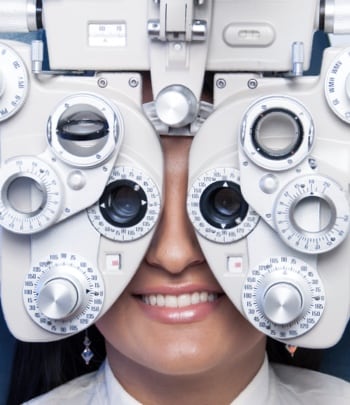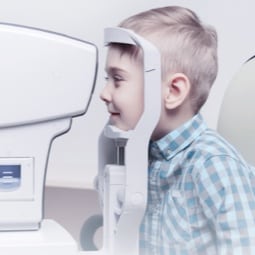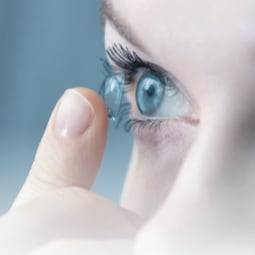Your Eyes & Body Share a Complex Relationship
We all know that it’s crucial to take care of your body. However, the benefits of managing your well-being extend far beyond feeling and looking healthy—it can also help you reduce the risk of several eye diseases and conditions.
Diabetes is one such issue that can affect your eye health, but the team at Total Vision Long Beach, formerly known as Dr. Goldstone Vision Center, is ready to help protect your vision.
See the difference quality eye care can make and book your diabetic eye exam in Long Beach today.
Understanding Diabetes
Approximately 37.3 million Americans have diabetes, and about 88 million Americans have prediabetes. Both of these diseases can increase the risk of developing an eye disease or condition. Still, managing your eye health starts by understanding how diabetes works.
Diabetes is a disease that affects how your body processes sugar in your bloodstream, ultimately leading to higher blood sugar. Insulin is a hormone that helps transport sugar into your blood cells, but the type of diabetes you have can affect either how your pancreas produces insulin or how your body responds to insulin.
High blood sugar increases the risk of several diseases and conditions, including some that affect your eyes.


How Diabetes Affects Your Eye Health
If you have diabetes, we recommend having annual eye exams.
During your eye exam, we’ll observe areas of your eye that diabetes can affect, like your retina, macula, optic disc, and eye blood vessels.
We use several different technologies during your eye exam to look for these issues. If we notice any problems developing, we can address them promptly by personalizing a treatment or management strategy.
Diabetic Retinopathy
Diabetic retinopathy is an eye disease directly related to diabetes.
As high blood sugar damages the blood vessels in your eyes, it can slowly leak fluids that can affect your retina. As diabetic retinopathy develops, you may experience blurry vision or possible vision loss.
If your diabetic retinopathy becomes more severe, your retina may compensate for the fluid loss by growing abnormal blood vessels. These vessels, however, are weak and can break easily. Eventually, it can create scar tissue on your retina and increase the risk of retinal detachment.
Diabetic Macular Edema
Diabetic macular edema is an eye disease that can develop as a result of diabetic retinopathy.
Fluids leaking from your damaged blood vessels can swell a part of your eye known as the macula. The macula provides the central vision you need to see sharp details, but swelling can affect this ability and lead to blurry vision or permanent vision loss.
Open-Angle Glaucoma
Several types of glaucoma exist, but diabetes can nearly double the risk of developing open-angle glaucoma, the most common version of the disease.
Open-angle glaucoma develops when blockages in your eye’s drainage system prevent fluids from draining properly. Over time, your intraocular pressure can rise and eventually damage your optic nerve, which is the part of the eye that sends messages to your brain.
Learn more about glaucoma on our Eye Disease Diagnosis & Management page.
Cataracts
Many people develop cataracts as they age, but diabetes can increase the risk of developing them earlier in life.
Cataracts affect a part of your eye called the crystalline lens. As a cataract develops, your crystalline lens can form a milky, hazy, cloudy appearance that could lead to vision problems.
We may be able to help correct some vision problems with glasses or contact lenses, but cataract surgery is the only way to restore your clear vision.
Get Help Preserving Your Eye Health
Dr. Goldstone Vision Center is ready to provide you with personalized strategies for preserving your vision. Book an appointment today!
Visit Us Today

Visit us
Find us in Long Beach Town Square shopping center, right next to the Starbucks.
- 2280 E Carson Street
- Long Beach, CA 90807
Hours of Operation
- Monday: 9:00 AM – 5:30 PM
- Tuesday: 9:00 AM – 5:30 PM
- Wednesday: 9:00 AM – 5:30 PM
- Thursday: 9:00 AM – 5:30 PM
- Friday: 9:00 AM – 5:30 PM
- Saturday: Closed
- Sunday: Closed


Our Brands




Our Google Reviews
Be the First to Know,
Be the First to Win.
From eye health insights to exclusive giveaways, your feed just got a lot clearer.








